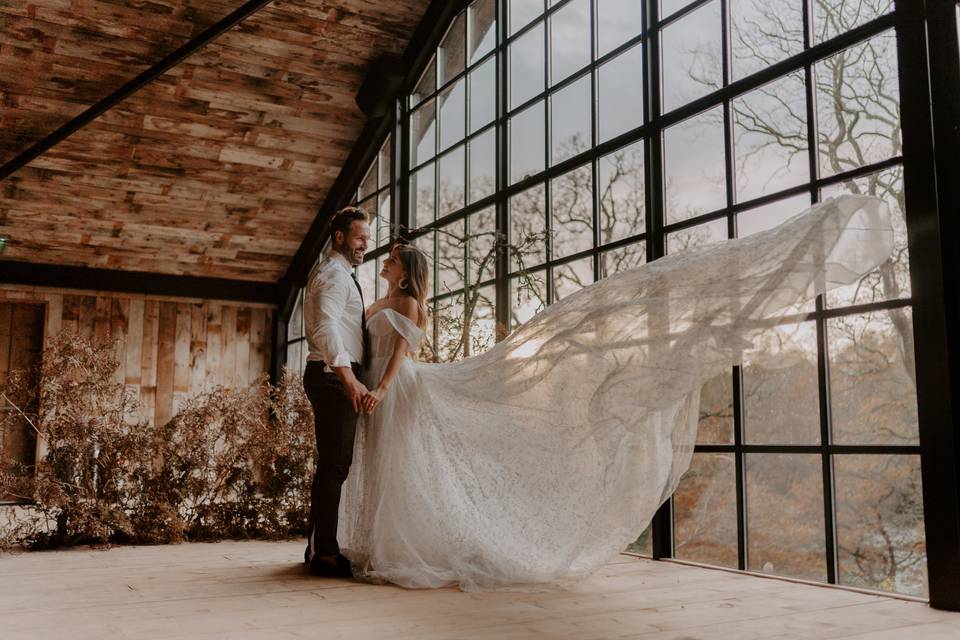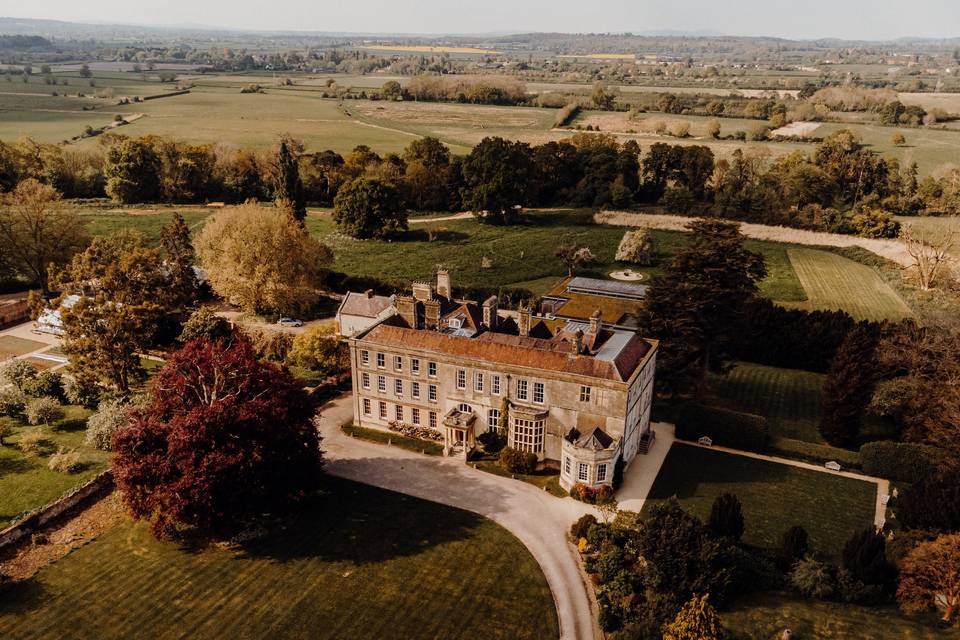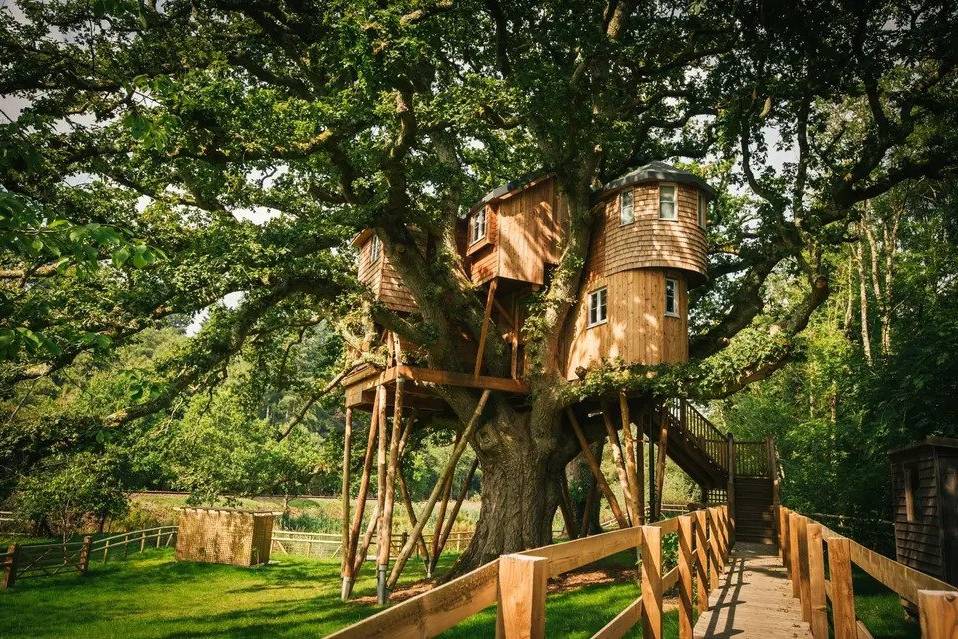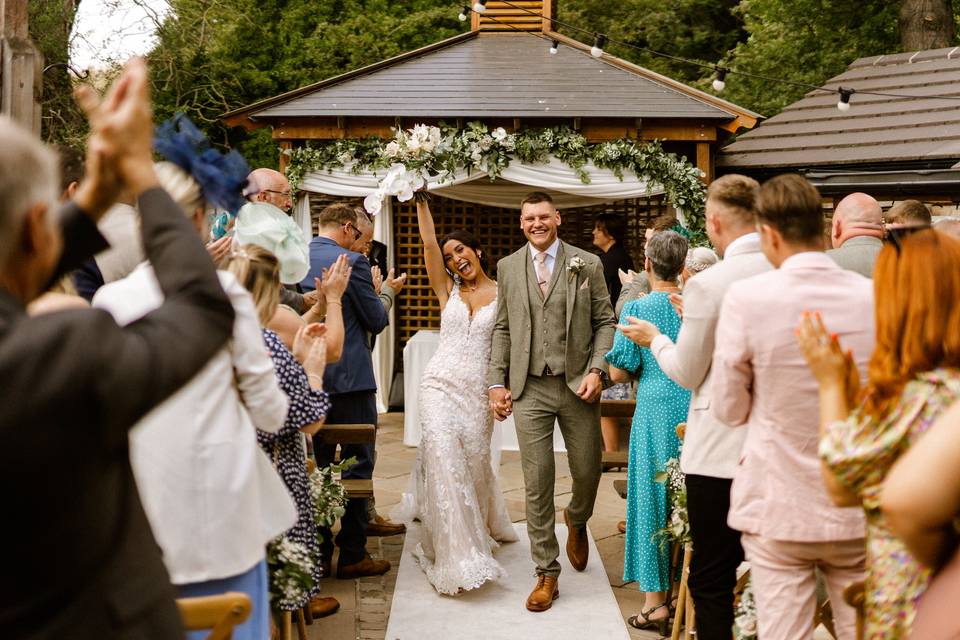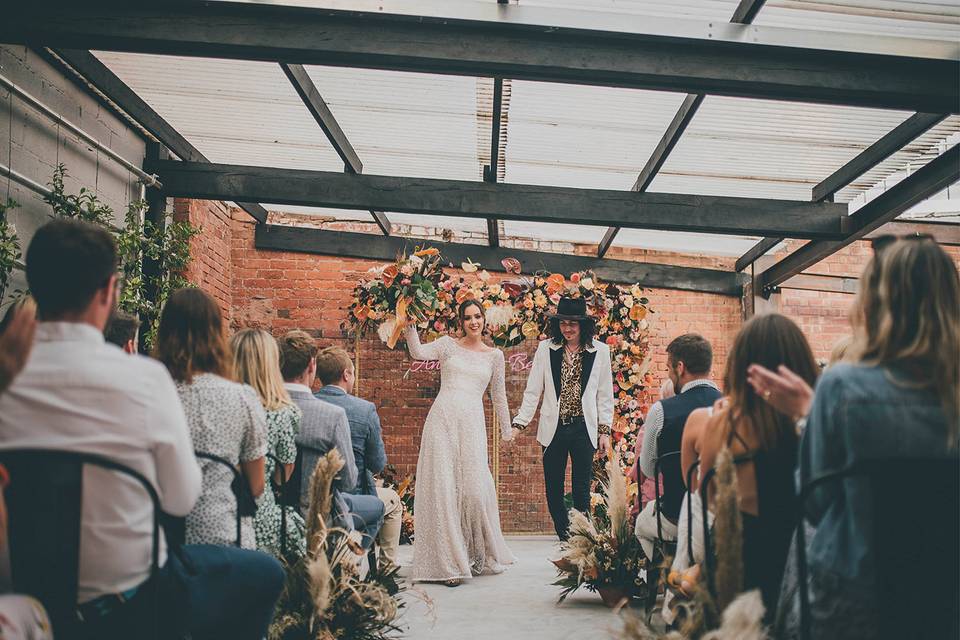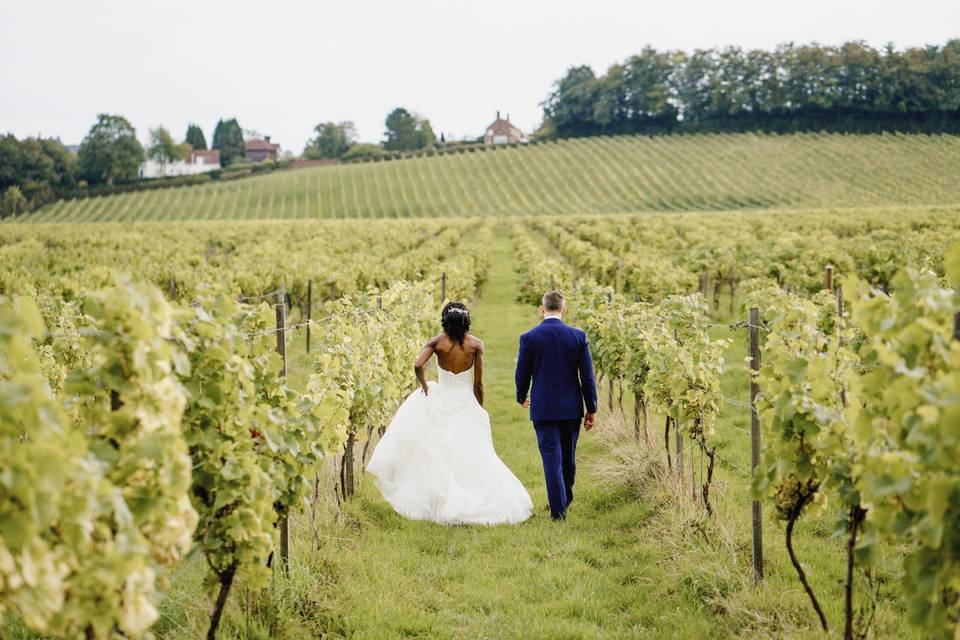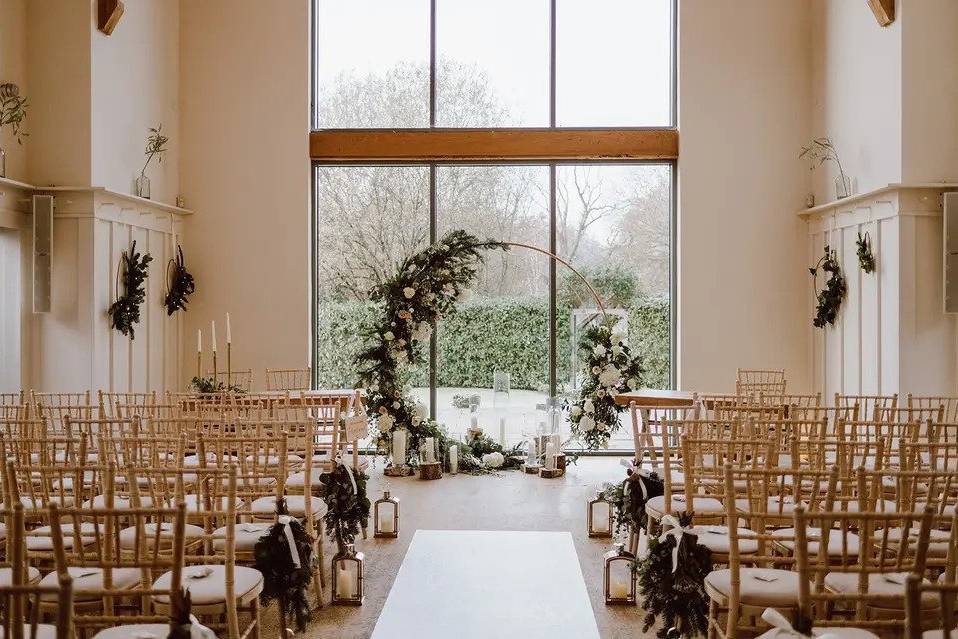What Is a Humanist Wedding? What Happens During the Ceremony? Your Questions Answered
Curious about what a humanist wedding is, what a humanist celebrant does and if a humanist ceremony might be right for you? Here's your ultimate guide.
We have included third party products to help you navigate and enjoy life’s biggest moments. Purchases made through links on this page may earn us a commission.
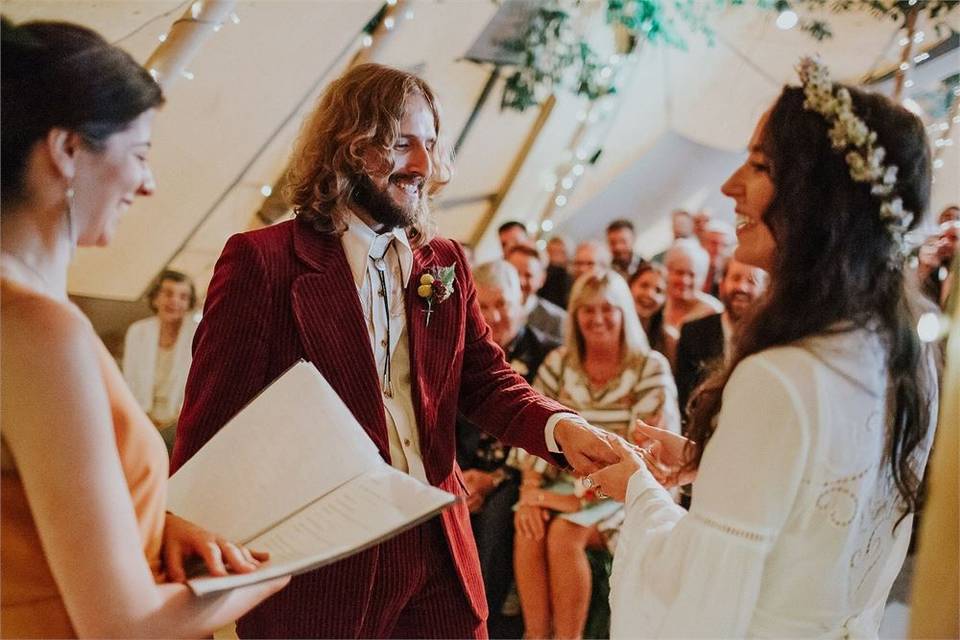
Humanist weddings have risen in popularity in the UK, with over 1,000 happening in England and Wales each year. But you might be wondering what a humanist wedding ceremony is, and how to have one yourself.
Lots of couple are now considering these non-religious wedding ceremonies as an alternative to a civil ceremony. But what exactly is a humanist wedding, is it legal, and do you need to be a humanist to have one?
We spoke to Humanists UK, a charity campaigning for equal human rights and the longest established human celebrant network in the UK, as well as asking humanist celebrants Rachael Meyer and Laura Gimson to talk us through exactly what a humanist wedding is and what humanist wedding ceremonies involve.
READ MORE
- What Is a Wedding Celebrant?
- The Best Outdoor Wedding Ceremonies
- Your Guide to Humanist Wedding Vows
What Is a Humanist Wedding?
A humanist wedding is a non-religious wedding ceremony that is free from many of the traditional rules around weddings. Humanist weddings can take place in any location, at any time of day, and couples have the freedom to be as creative as they want. In fact, Director of Ceremonies at Humanists UK Deborah Hooper explains they have conducted ceremonies featuring all sorts of customs and traditions including handfasting and drinking from a quaich, as well as couples walking down the aisle together and even getting their pets involved.
The ceremony will be led by a humanist celebrant who writes a script especially for each couple; there is no template or set declarations each couple need to follow. Instead the ceremony is personal and meaningful, focused upon the couple's love and shared values.
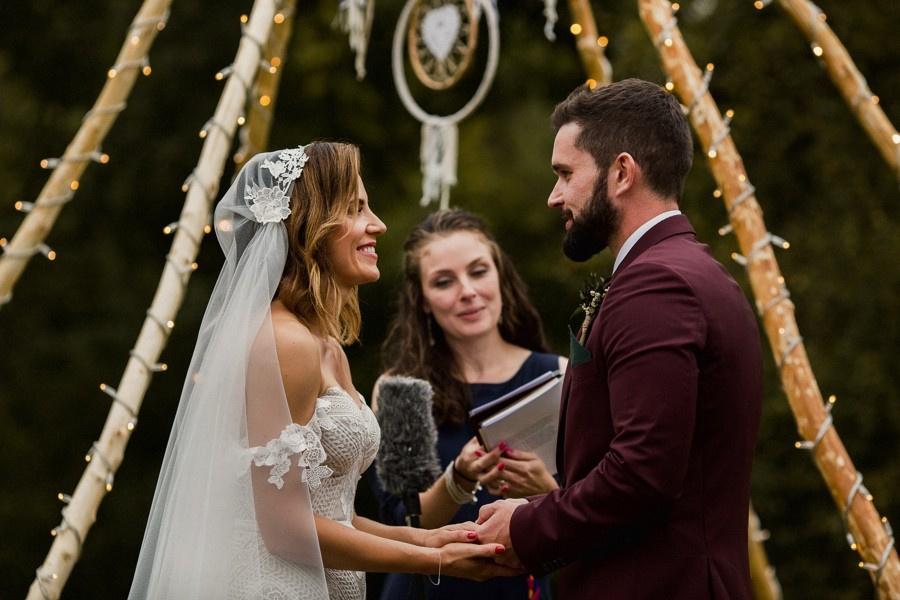
What Does a Humanist Believe?
“A ‘humanist’ is someone who chooses to live a good life without religious or superstitious belief,” explains Rachael. “Humanists believe that moral values follow on from human nature and experience rather than by abiding by set rules dictated by a religion.
“They essentially believe that they should treat others as they would like to be treated themselves – i.e. with equality and fairness, with humanity. In ceremonies, humanists really celebrate life – whether in birth, marriage or death.”
The majority of humanists are atheists and do not believe in God, however, some are agnostic. Rachael points out that this does not mean people with religious beliefs are excluded from humanist weddings – all people are welcome at a humanist ceremony.
Those who lead humanist ceremonies - which can be any important life milestone like a wedding, vow renewal, baby naming and funeral - are called humanist celebrants and they are committed to the principles of humanism as set out by Humanists UK. The charity accredits celebrants and campaigns for a fair and secular society.
"Humanists UK is a charity which campaigns tirelessly against discrimination and constantly works to bring about fair and equal treatment for all," explains Laura. "They were instrumental in the legalisation of same sex marriages; they played a pivotal role in the decriminalisation of abortion in Northern Ireland. For every ceremony I conduct, I pay back a proportion of my earnings to fund their work. So each couple I marry is contributing to a fairer and more tolerant world!"
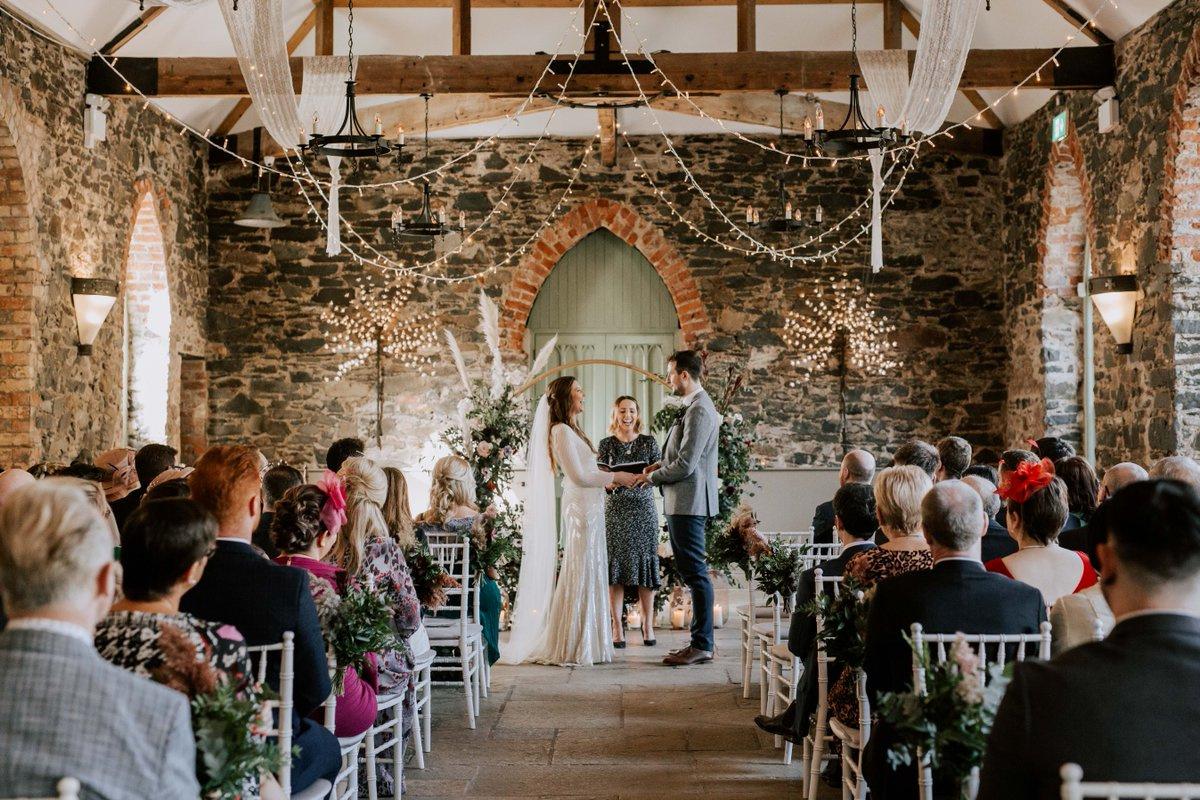
What’s the Difference Between a Civil Ceremony and Humanist Wedding Ceremony?
A civil ceremony performed by a registrar – either in a registry office or licensed venue – and a humanist wedding are both non-religious wedding ceremonies, however, in reality they couldn’t be more different.
Rachael says, “Civil ceremonies are legally recognised, but are bound by restrictions regarding the content, duration and originality of the script. There can be no religious aspect at all in words or music, and ceremony scripts are usually completely standardised or with little variation, with the blanks filled in for each couple.
“Although some couples are lucky enough to have an engaging officiant on the day, others can end up with a short, prescriptive, very formal and typically legal ceremony delivered by a total stranger. It can be perfect for some couples, but it can also be pot luck!”
On the other hand, the key idea of a celebrant-led wedding is that it’s tailored and meaningful, guided by a celebrant who delivers a bespoke ceremony that reflects the couple’s personality. There are no limits to gender, race, sexual orientation, size, ability or circumstance for the couple. There are celebrants within the Humanist Ceremonies network that can lead bi-lingual ceremonies in Welsh, French, Spanish, and Italian. Additionally, Audrey Simmons is available to conduct weddings in British Sign Language.
Celebrants are also able to perform a wedding anywhere; it doesn’t have to be a licensed venue. Laura says, "A celebrant-led ceremony is free of restrictions. It can take place anytime and anywhere that has meaning to you - a forest, a garden, a cliff overlooking the sea, a narrowboat, a cinema, a ski slope; just say the word and we’ll be there in our finest garb!"
READ MORE: How to Write Your Own Wedding Vows
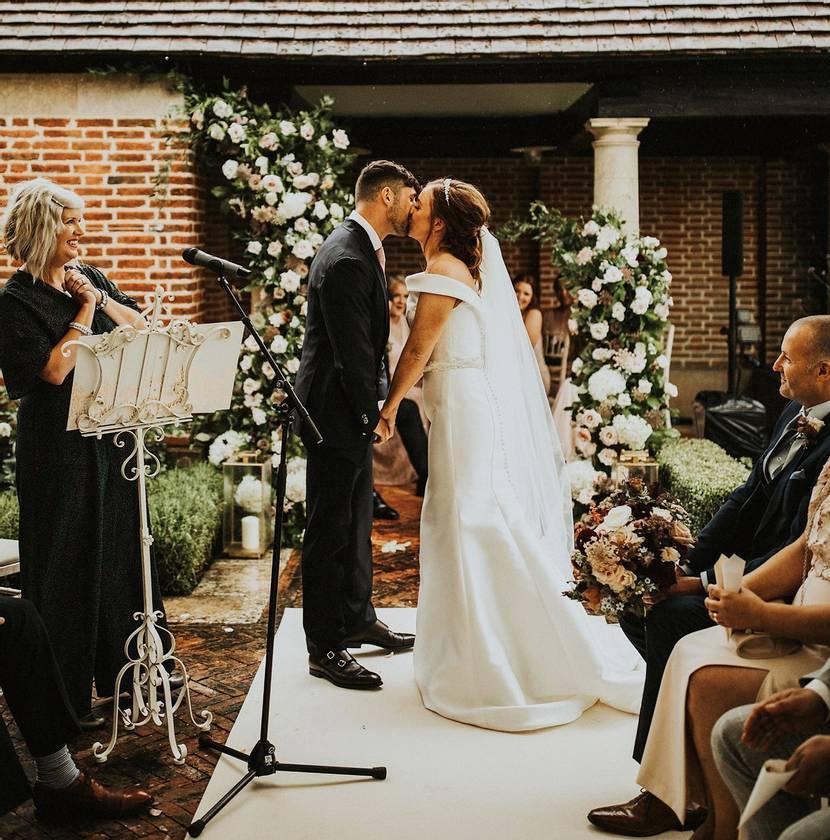
Is a Humanist Wedding Legal?
This depends on which part of the UK you live in. Humanist weddings gained legal recognition in Scotland in 2005, and the number of humanist weddings in Scotland has now overtaken the number of Church of Scotland and Catholic weddings combined, says Rachael. They are also legally recognised in Northern Ireland and Jersey, however, humanist weddings are not legal in England and Wales.
Don’t let this panic you or put you off! It simply means you have to register the marriage or civil partnership beforehand at a registry office. A statutory marriage ceremony or a civil partnership registration can be carried out for under £50 at a registry office anytime before or after the wedding day and takes as little as six and a half minutes.
Rachael advises couples to think about their wedding in the same way as other momentous life occasions like your birth or the birth of a child. They all require local government registration after the event, but you celebrate the anniversary of the day of the act, not of the day of legal registration!
“A wedding ceremony is a sincere but joyful, public commitment of love in the presence of friends and family – the legal recognition of the ceremony is just a formality! Humanists UK are lobbying the UK government to change legislation in England and Wales, and are hopeful that this will be addressed soon.” You can follow the campaign on Humanists UK's website, and on Instagram, Twitter and Facebook.
READ MORE: The Best Non-Religious Wedding Ceremonies
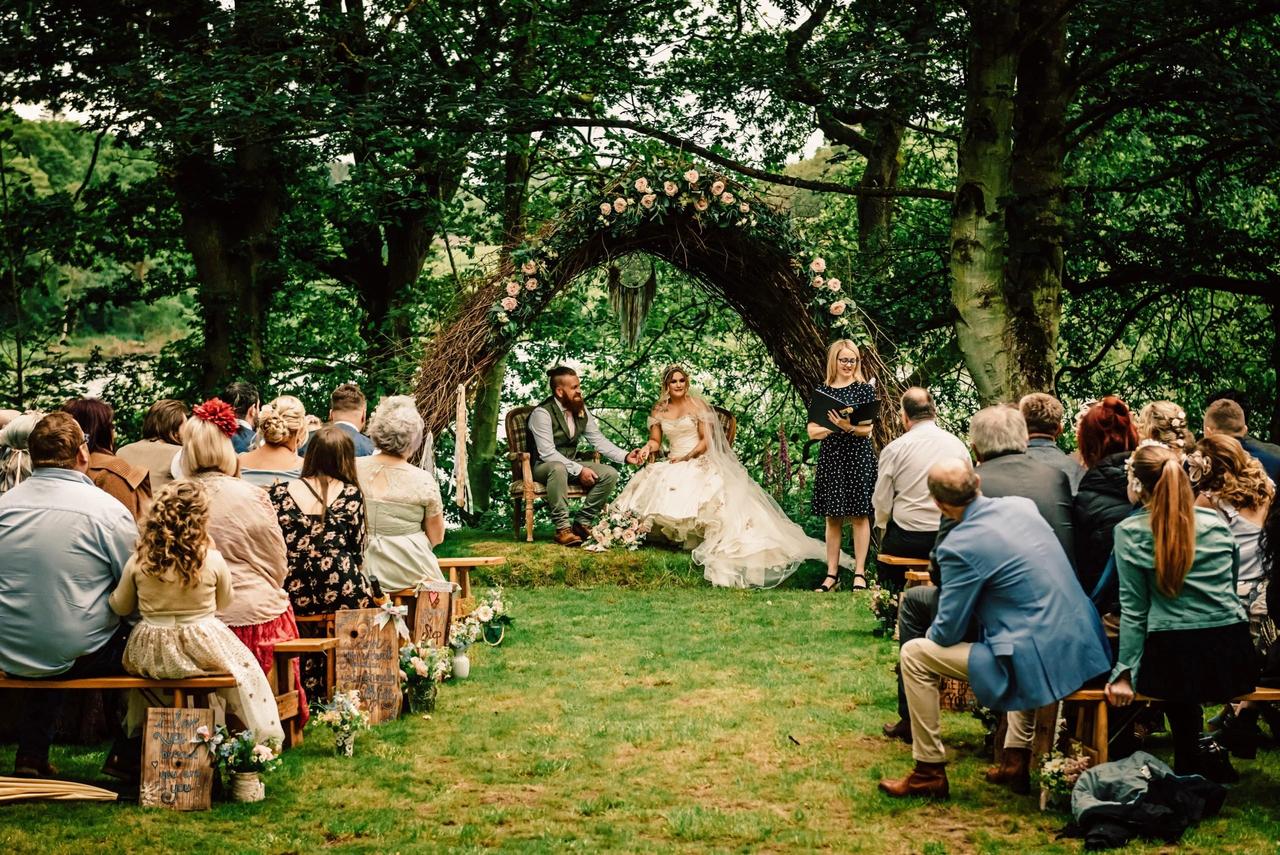
Is There a Difference Between a Humanist Celebrant and an Independent Celebrant?
Yes. An independent celebrant will perform a wedding for couples of any faith and none, and happily include any religious content or rituals the couple want. A humanist celebrant can perform ceremonies for couples who are interfaith or one is religious, but that ceremony will typically not include any religious words.
Rachael explains: “Humanists are very accepting that other people have religious belief, and that all people are welcome at and will feel included in a humanist ceremony – no matter what their belief. Some humanist celebrants offer people time for reflection and prayer if they know that that’s what people from some side of the families will want to do.”
Laura adds, "I've worked with a lot of couples who grew up around religion and, understandably, that upbringing can feel like an important part of who they are. So while I personally prefer not to include actual prayers, I'm really happy to find creative ways to pay tribute to religious culture. I've included a glass smashing at the end of a ceremony for a groom from a Jewish family. Another couple lit a unity candle which celebrated their union but also gave a little nod to their Irish Catholic roots."
READ MORE: 36 Wonderful Woodland Wedding Ideas
However, if you definitely want to include religious content or rituals in your wedding, you’re best to choose an independent celebrant.
Independent celebrant Sarah Noble explains: “As an independent celebrant, I say you can be mixed faith, no faith, interfaith, humanist, traditional or modern. For a truly heartfelt ceremony, love is all you need.”
You don’t have to be a humanist to have a humanist wedding, however couples often discover an affinity with the humanist philosophy (non-religious, living an ethical life looking to science, reason and compassion). If you simply want a lovely ceremony, look to a celebrant.
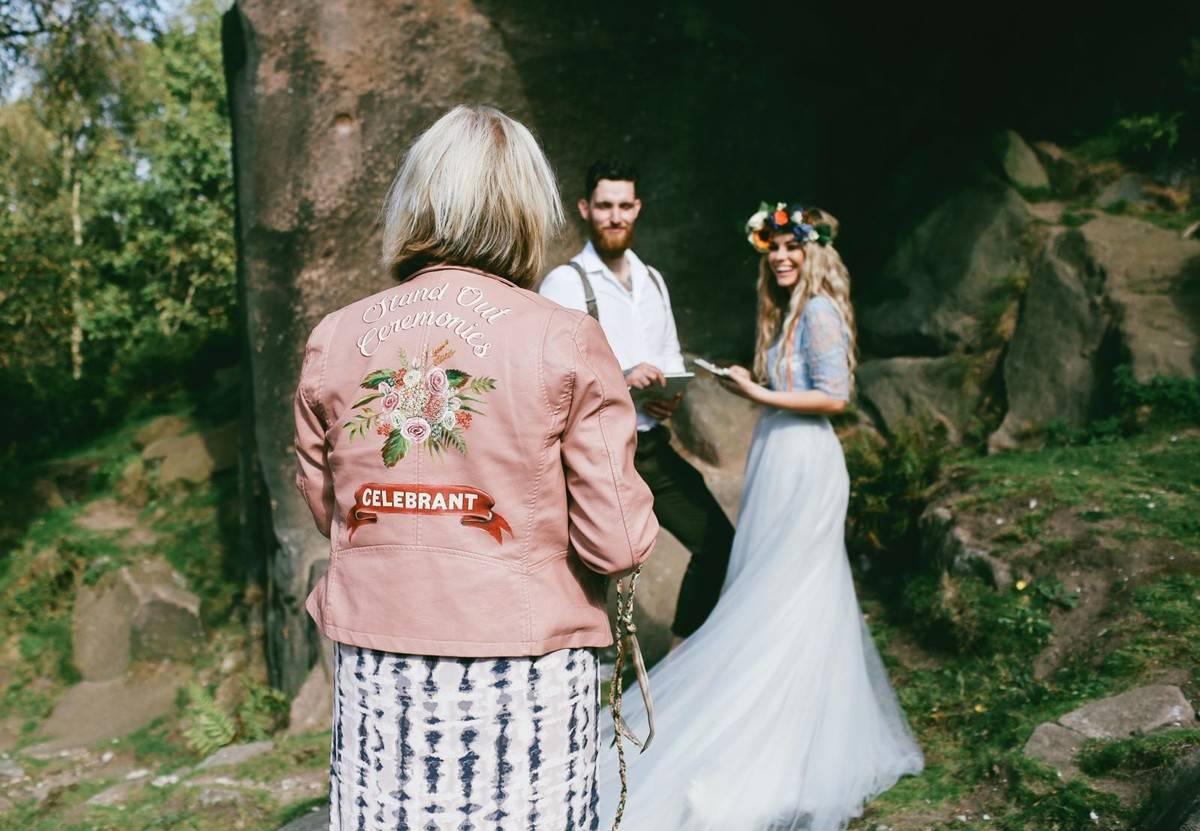
What Happens at a Humanist Wedding Ceremony?
Here’s a brief outline of a humanist wedding ceremony, according to humanism.org.
- Arrival of the couple (individually or together)
- Introductions and welcomes
- Words about love and commitment from a non-religious perspective
- Reading or poem
- The couple’s story – how they met, their shared values, hopes for the future
- What marriage means to the couple
- Reading, poem or song
- The couple’s promises/vows
- Meaningful symbolic act (e.g. handfasting)
- Exchange of rings
- Pronouncement as married
- Words of well-wishing
- Closing and departure
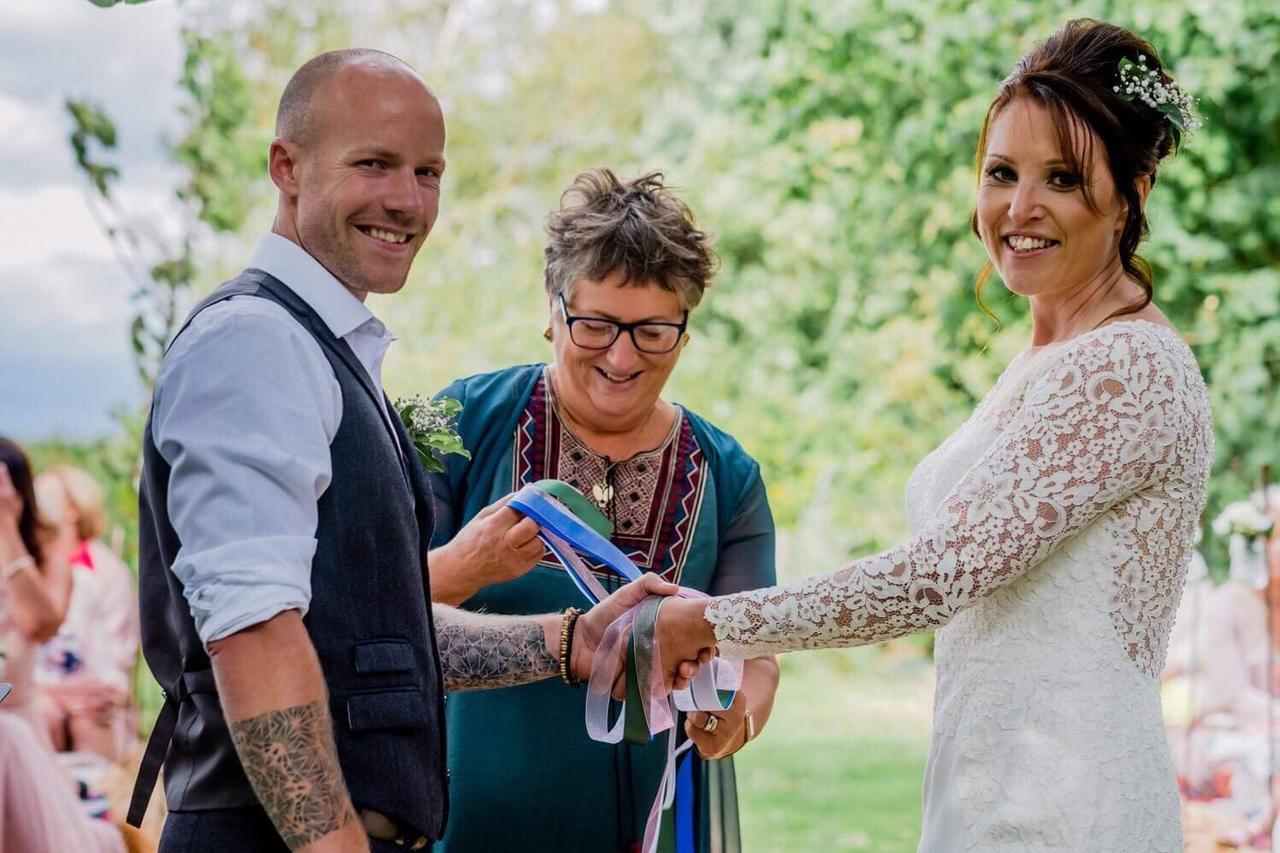
The symbolic act is an incredibly meaningful part of both humanist and celebrant-led wedding ceremonies. Independent celebrant Sarah explains the four most popular rituals performed are:
- Handfasting, where a cord or sash is used to tie the hands of a couple together as they recite words expressing their commitment to one another. It’s where the phrase ‘tying the knot’ comes from!
- Hand-holding ceremony, where couples face each other, hold hands and look into each others’ eyes as a blessing is spoken over them. Sometimes you’ll cross your arms over to form an infinity symbol that represents a love which will go on forever.
- Candle ceremony, where each of you lights a candle representing your separate lives, and together you use the two tapers to light a third or different coloured candle to symbolise the joining together of your life in marriage. You can use more than three candles and, if you have a family, your children can join in one lighting the largest candle.
- Unity sand ceremony, where the couple each pour a different coloured sand into a third container indicating the intertwining of their lives in marriage. It’s fantastic if you have children as you can all pour your own sand into the container, representing you as a family unit, never to be separated.
Other types of symbolic act in both humanist and celebrant-led ceremonies include stamping glasses underfoot, swapping garlands, jumping the broom, releasing doves, gift-giving, and wine or flower rituals.
Rachael recommends doing some research on your celebrant: “Each celebrant has different views and ideas so couples can choose a celebrant based on their wishes at the outset.”
How Do I Choose My Celebrant?
"The most important advice I could give would be to make sure you meet or video call your celebrant before signing on the dotted line," says Laura. "This is someone you’ll be entrusting with a real milestone moment in your life. Not only that, they have the task of putting words to some of your biggest and most powerful feelings. So, just like dating, there has to be a genuine connection - a chemistry! Check you feel comfortable chatting. Check you can laugh together! And make sure they sound like they understand your vision."
Each celebrant will bring their own individual personality to the table, says Laura, so know what your style and taste is before starting your search.
"Two celebrants given the same couple to work with would undoubtedly end up writing and conducting something wildly different! So ask your celebrant what they think sets their ceremonies apart from those of others. What is the element that is unique to the way they approach weddings? And then decide if that sounds like what you’re after. Finally, if in doubt, deep-dive into their reviews!"
Humanist Ceremony celebrants are part of a network of more than 500 trained professionals, which means there will always be someone trusted there to deliver your ceremony. You'll also be working with an ethical celebrant who supports the aims of Humanists UK for a fair and equal society, so they're a great place to look if you're unsure.
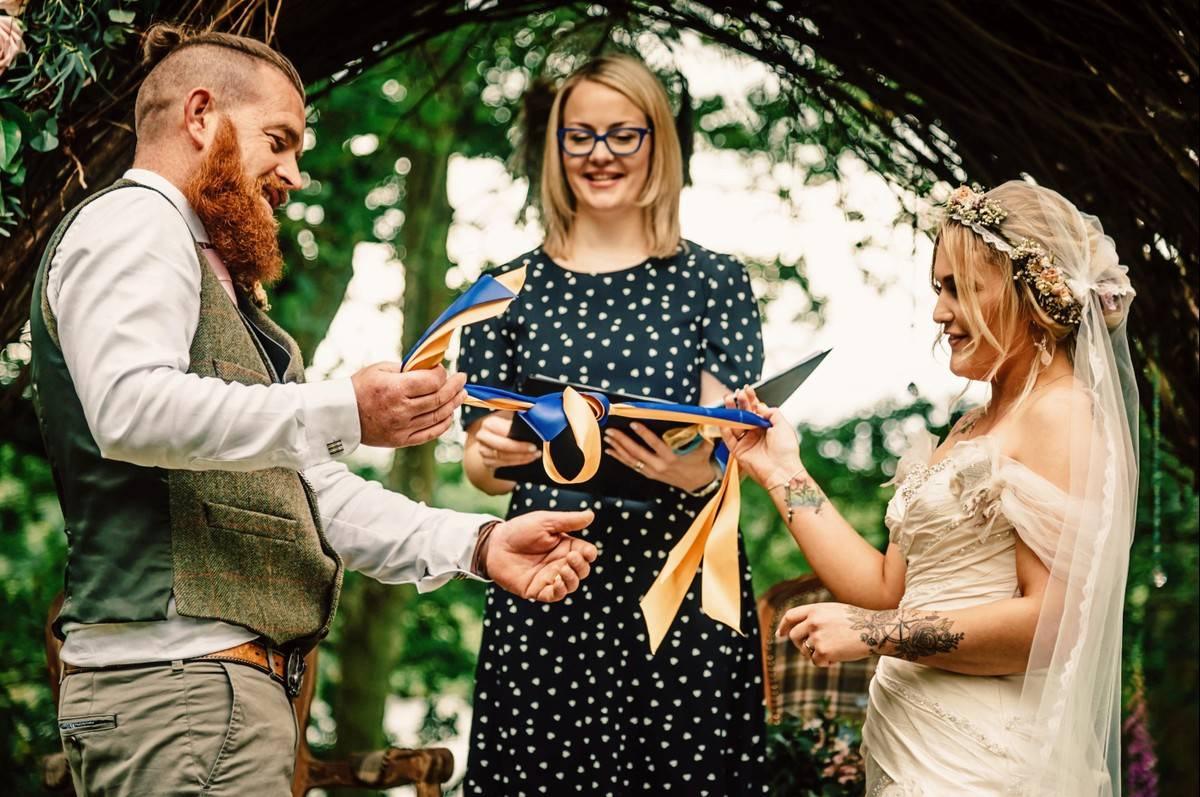
What Happens When You Meet Your Celebrant?
This is a hugely enjoyable part of the process, because you get to sit down with the celebrant and tell them the story of your love!
You’ll normally meet them in person for a couple of hours where they ask you copious amounts of questions and take notes. The celebrant may help you pick out readings, music and show you the different symbolic acts you can pick. You’ll come up with a plan for the running of the service with them.
After you’ve left, the celebrant will craft a ceremony script that tells your love story with lots of emotion and laughter. As Sarah says, “My job is to make your mum cry tears of happiness.” The celebrant will be on hand to guide you through the process and discuss the ceremony all the way up to the wedding day.
On the day, the celebrant will arrive early to prepare for the ceremony and may say hello to you while you get ready. Often, they’ll ask what your colour scheme is and wear something that suits your wedding theme. Then it’s time to host the ceremony!
At the end of the ceremony, you’ll receive a presentation copy of the script as a keepsake.
READ MORE: Festival Wedding Venues for Cool Couples
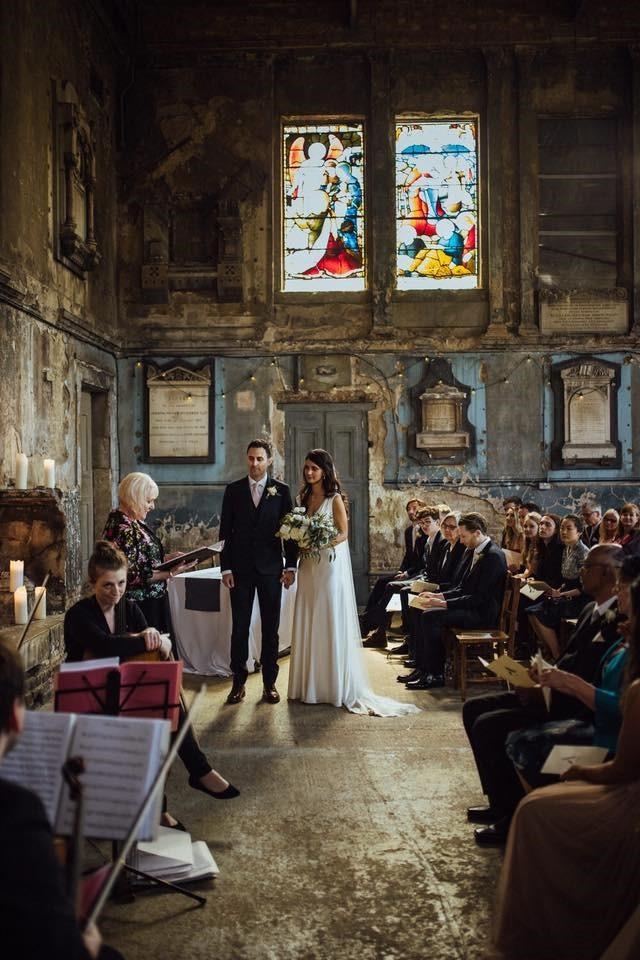
How Long is a Humanist Wedding Ceremony?
A humanist ceremony can take as little as 25 minutes to over an hour; because it’s your day, you can decide what you’d prefer.
How Much Does a Humanist Wedding Cost?
There’s no set fee structure; it’s dependent on geographical location, experience, and local supply and demand. Because of the amount of work involved, e.g. the hours the celebrant spends with you beforehand, it can be slightly more expensive than a registrar.
The price of a Humanist celebrant can vary between £450-£1,300. If you add up registrar fees and ceremony room hire, it often works out to a similar price as having a registrar attend a registered building.
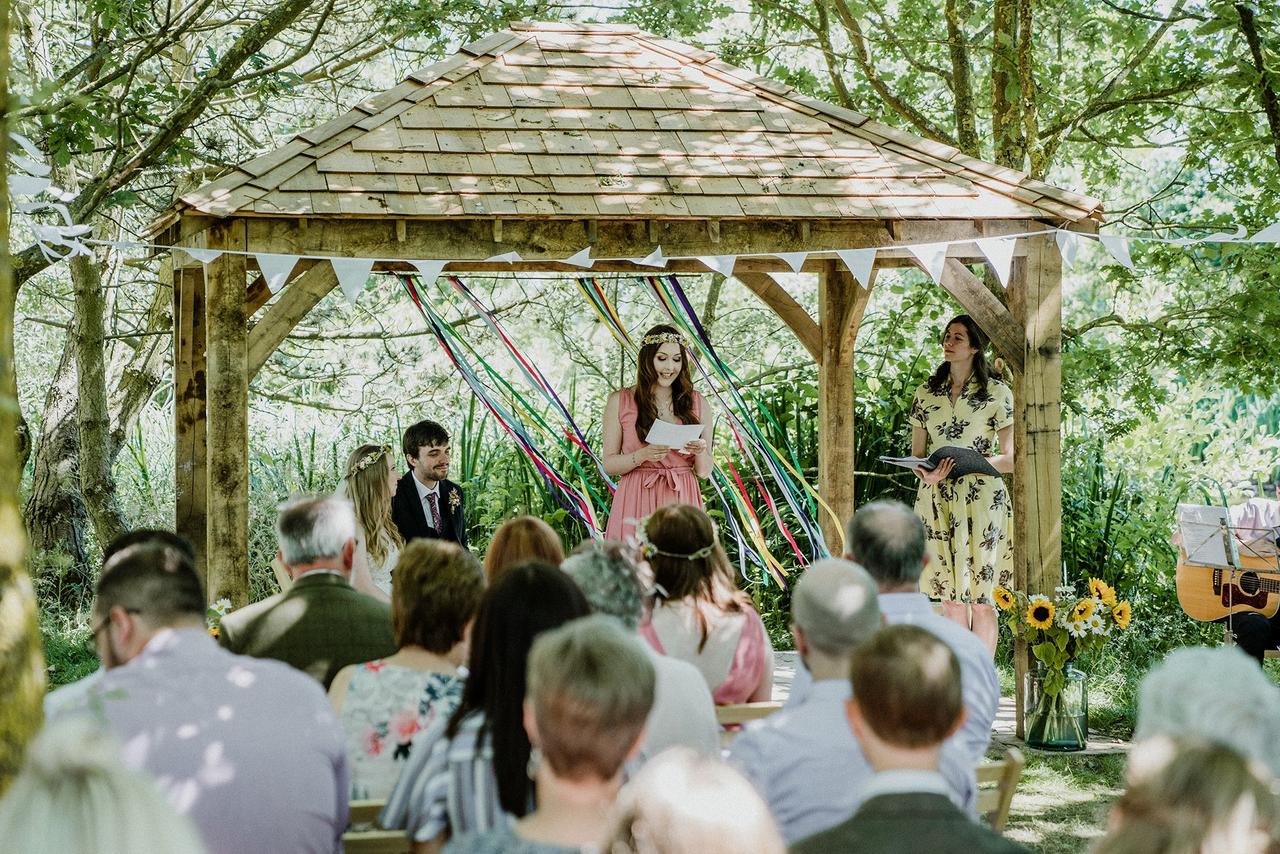
How Far in Advance Should We Book a Celebrant?
Rachel and Sarah both suggest getting in contact as soon as you know when you’re getting married. Experienced celebrants are often booked up a year in advance.
Do some research on celebrants in your area and speak to a few on the phone to gauge if they have the right tone for your wedding. Because it’s such a personal ceremony, it’s important to feel comfortable with the celebrant.
You can find a wedding celebrant through Hitched, a Google search, or if you’re specifically looking for a humanist celebrant, you can use Humanists UK’s Find a Celebrant map.
How Do Family and Friends React to a Humanist Ceremony?
Worried that your church-going Grandma might not react well to a humanist or non-traditional wedding? Rachael says not to worry.
“People who have been guests at, or who have had humanist weddings themselves, are always complimentary. Because the ceremonies are so warm and engaging and are so reflective of the couple’s personalities, values and wishes, they are emotional, heartfelt, surprisingly out of the ordinary, relaxed and utterly personal.
“When two people come together to publicly vow to love, support and be there for each other for the rest of their lives, it’s a celebration. What’s not to love?!”
Still worried some family members might think it seems a bit "hippy"? You can read what Laura says to her couples here.
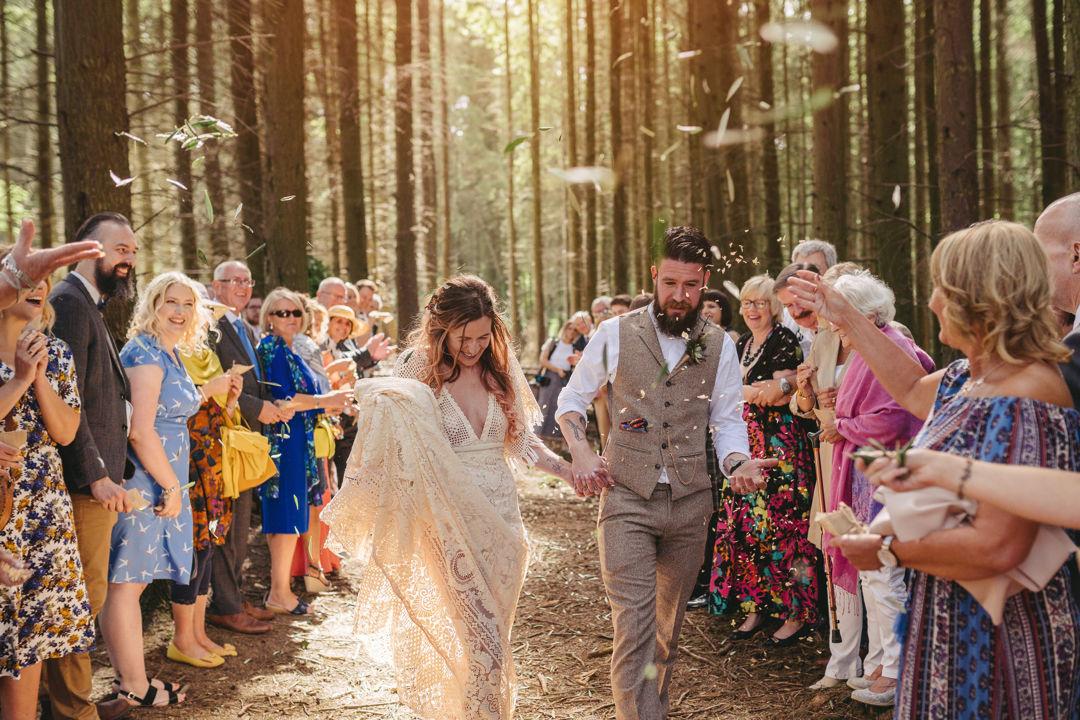
Why Have a Humanist Wedding?
Here are the benefits of a humanist wedding:
- Bespoke ceremony performed by a celebrant who has become close to you as a couple and knows your story
- Open and inclusive, welcoming same-sex and interfaith couples
- No restrictions geographically on where the ceremony can take place
- Humanist celebrants undergo gold standard training by Humanists UK, and the service includes public liability insurance
- If couples who choose a humanist wedding are curious about humanism, they can take advantage of a year’s free membership of Humanists UK
If you’re interested in a wedding ceremony performed by a humanist celebrant or independent celebrant, visit Hitched’s celebrant page to discover more in your area.

